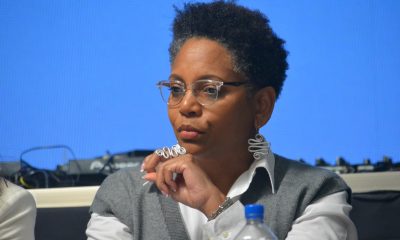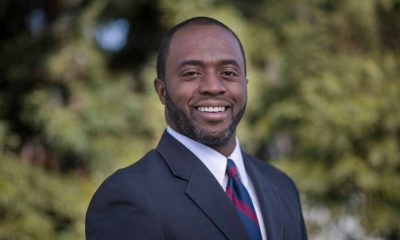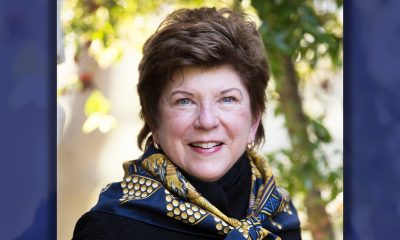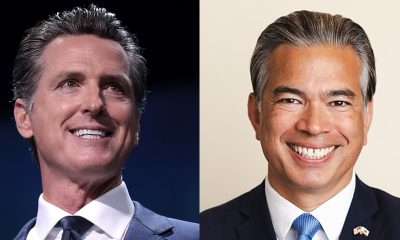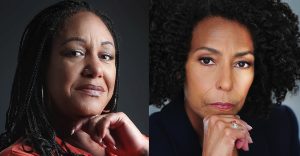Activism
CA/Hawaii NAACP Conference: “Dismantling Racism and Disrupting Inequality”
: Ida B. Wells-Barnett (1862–1931), a Black investigative journalist, women’s rights activist, and civil rights advocate, is renowned for her campaign against lynching. Wells-Barnett was instrumental in shaping public opinion against lynching through her newspaper editorials, pamphlets, clubs, and lecture tours across the northern United States.
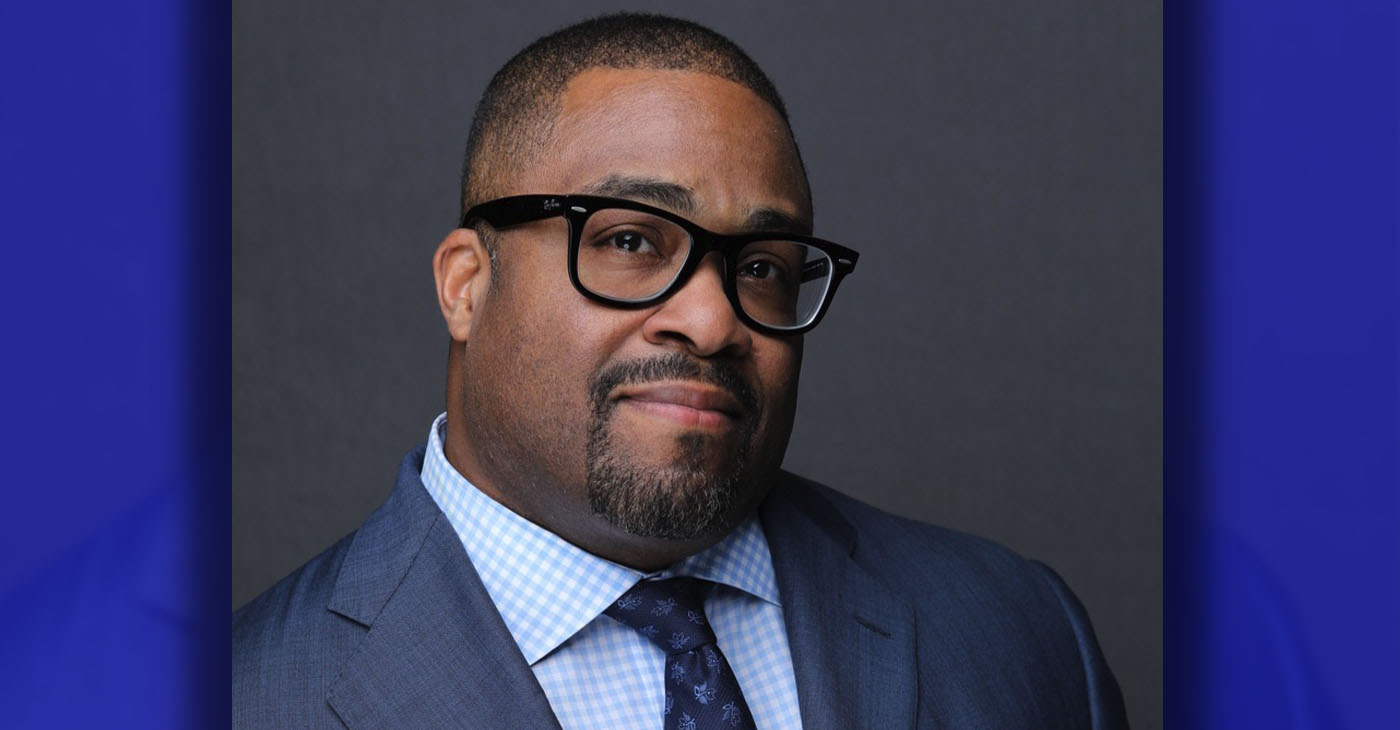
By Antonio Ray Harvey
California Black Media
Ida B. Wells-Barnett (1862–1931), a Black investigative journalist, women’s rights activist, and civil rights advocate, is renowned for her campaign against lynching.
Wells-Barnett was instrumental in shaping public opinion against lynching through her newspaper editorials, pamphlets, clubs, and lecture tours across the northern United States. Wells held the position of secretary in the Afro-American Council, where she led its anti-lynching bureau. Her efforts paved the way for the National Association for the Advancement of Colored People’s (NAACP) anti-lynching campaign.
Following the racial violence of the 1908 Springfield massacre in Illinois, the NAACP was founded on Feb. 12, 1909. The organization was established by over 60 founding members, including Wells- Barnett, W. E. B. Du Bois, Mary McLeod Bethune, William Bulkley, the Rev. Francis Grimke, and Mary Church Terrell, among others.
The NAACP’s principal objective is to secure political, educational, social, and economic equality for minority groups in the United States and eradicate racial prejudice. As a service organization, it aims to remove all barriers of racial discrimination through democratic processes.
The NAACP is America’s oldest and largest civil rights organization and today comprises a network of over 2,200 affiliates spanning all 50 states, the District of Columbia, Japan, and Germany. Headquartered in Baltimore, its membership exceeds 500,000.
The NAACP California-Hawaii State Conference, with its 72 branches and youth units, is actively engaged across both states to promote racial justice and equality.
Rick L. Callender, who serves as president of the NAACP’s California/Hawaii State Conference and is a member of the National NAACP Board of Directors, spoke with California Black Media about the work the state conference is doing.
What does your organization do to improve the lives of Black people in California?
We’re committed to dismantling racism and disrupting inequality to create a society where all people can truly be free. Our efforts encompass active civic engagement, systematically fostering racial equity, and championing policies and institutions that urgently address the specific needs of Black communities, who bear the brunt of race- based discrimination.
What was your greatest success over the course of the last year?
(We) have been sticking to our long-lived goal of fighting for justice and prioritizing our community’s needs. In the past year, we notched up some significant victories with Gov. Newsom signing three of our priority bills into law, namely Assembly Bill (AB) 1327, Senate Bill (SB) 673, and Assembly Bill 1165.
AB 1327 addresses a standing problem that many California high school student-athletes of color have dealt with: racism during high school sporting contests. The bill mandates … (the creation of) a standardized form for recording hate violence and hazing incidents at high school sporting events.
SB 673, authored by Sen. Steve Bradford (D-Inglewood), guarantees that Black children and young Black women will receive the attention and protection they need when they are reported missing.
AB 1165, authored by Assemblymember Kevin McCarty (D- Sacramento), addresses racism on school campuses by encouraging schools to implement a restorative justice practice when a student has perpetrated racist bullying, harassment, or intimidation.
In your view, what is the biggest challenge Black Californians face?
The (Conference) is on a mission for total racial equity, delving into realms like health, housing, education, economic development, criminal justice, and environmental wellbeing.
What was your organization’s biggest challenge?
Just like all nonprofits, funding the efforts are always at the forefront. Secondly, generating a base of trained and engaged volunteers also creates a challenge.
Does your organization support or plan to get involved in the push for reparations in California?
We are and have been at the forefront in the battle for reparations at the national, state and local levels. NAACP San Francisco President, Rev. Amos Brown, is also at the forefront of the reparations’ movement in California, not just as a participant but as a key player.
How can more Californians of all backgrounds get involved in the work you’re doing?
Join the NAACP to get involved with activists and organizers in your local NAACP branch and stand tall against injustice, dismantle systemic racism.
Activism
Calif. Anti-Sex Trafficking Advocates Discuss Competing Bills, Strategies
Advocates from across California are challenging state officials and community leaders to support legislation that provides resources and services for survivors and victims of human trafficking, as well as assistance as they transition back into civil society. Some of those advocates are also calling for more effective state policy to curtail trafficking, a crime that has an outsized impact on Black children, particularly girls.
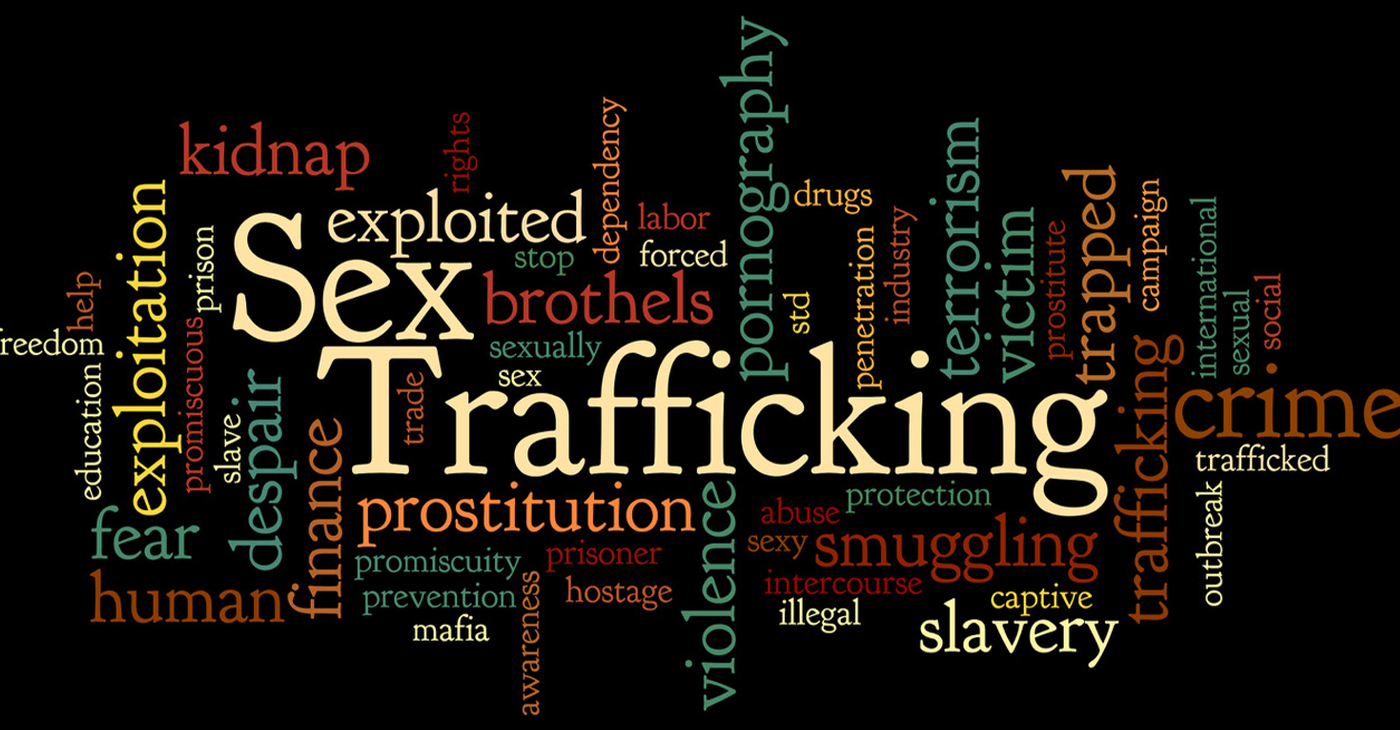
By Bo Tefu, California Black Media
Advocates from across California are challenging state officials and community leaders to support legislation that provides resources and services for survivors and victims of human trafficking, as well as assistance as they transition back into civil society.
Some of those advocates are also calling for more effective state policy to curtail trafficking, a crime that has an outsized impact on Black children, particularly girls.
According to the FBI, a report covering a two-year period found Black children accounted for 57% of all juvenile arrests for prostitution. In addition, 40% of sex trafficking victims were Black and 60% of those victims had been enrolled in the foster care system.
“It is time to hold the perpetrators who take advantage of our children accountable,” said the Rev. Shane Harris, a San Diego-based activist, former foster youth and founder of the Peoples Association of Justice Advocates, (PAJA), a national civil rights organization and policy think tank.
“It is time to send a thorough message that if you seek to buy a child for sex, you will pay the highest criminal penalties in this state,” added Harris who was speaking at a rally at the State Capitol earlier this month. Harris was speaking in support of Senate Bill 1414, authored by Sen. Shannon Grove (D-Bakersfield), which calls for people who buy sex from minors to be punished with a felony. The punishment includes a two-year prison sentence and a $25,000 fine.
Harris said the PAJA is the only civil rights organization in the state that supports SB 1414.
Harris urged other Black-led groups who favor anti-trafficking legislation more focused on criminal justice reforms (as opposed to stiffer penalties), to “join the movement.”
Many of those civil rights groups fear that SB 1414 could lead to the incarceration of more Black youth.
Those sentiments were echoed in a panel discussion organized by Black women advocates on April 26 to examine the cause and effects of human trafficking in California’s Black communities. The virtual event was hosted by the Forgotten Children, Inc, a faith-based nonprofit that advocates for survivors and victims of human trafficking through anti-trafficking campaigns and initiatives.
Panelists shared the psychological impact of sexual exploitation on youth and children in the long term.
Author and educator Dr. Stephany Powell shared statistics and information revealing that African American women and girls are the most trafficked nationwide.
Powell, who serves as the senior advisor on law enforcement and policy at the National Center on Sexual Exploitation said that national data indicates that sex trade survivors are disproportionately women of color. She stated that male survivors often go unnoticed because boys rarely report trafficked crimes.
Powell said that decriminalizing prostitution in California could increase human trafficking. She argued that Senate Bill 357, authored by Sen. Scott Wiener (D-San Francisco), which was signed into law in 2022 and legalized loitering for prostitution, caused a surge in street-level prostitution.
Panelist and psychologist Dr. Gloria Morrow shared opposing views on decriminalizing prostitution. She said that decriminalizing prostitution could help survivors gain access to state resources and support.
Despite opposing views, Powell and Morrow agree that the Black community needs resources and educational programs to address human trafficking.
Activism
Obituary: Social Justice Leader, the Rev. Cecil Williams, Passes at 94
On April 22, community leader and social justice advocate Reverend Cecil Williams died at his home in San Francisco surrounded by his loved ones, according to his family. He was 94 years old.
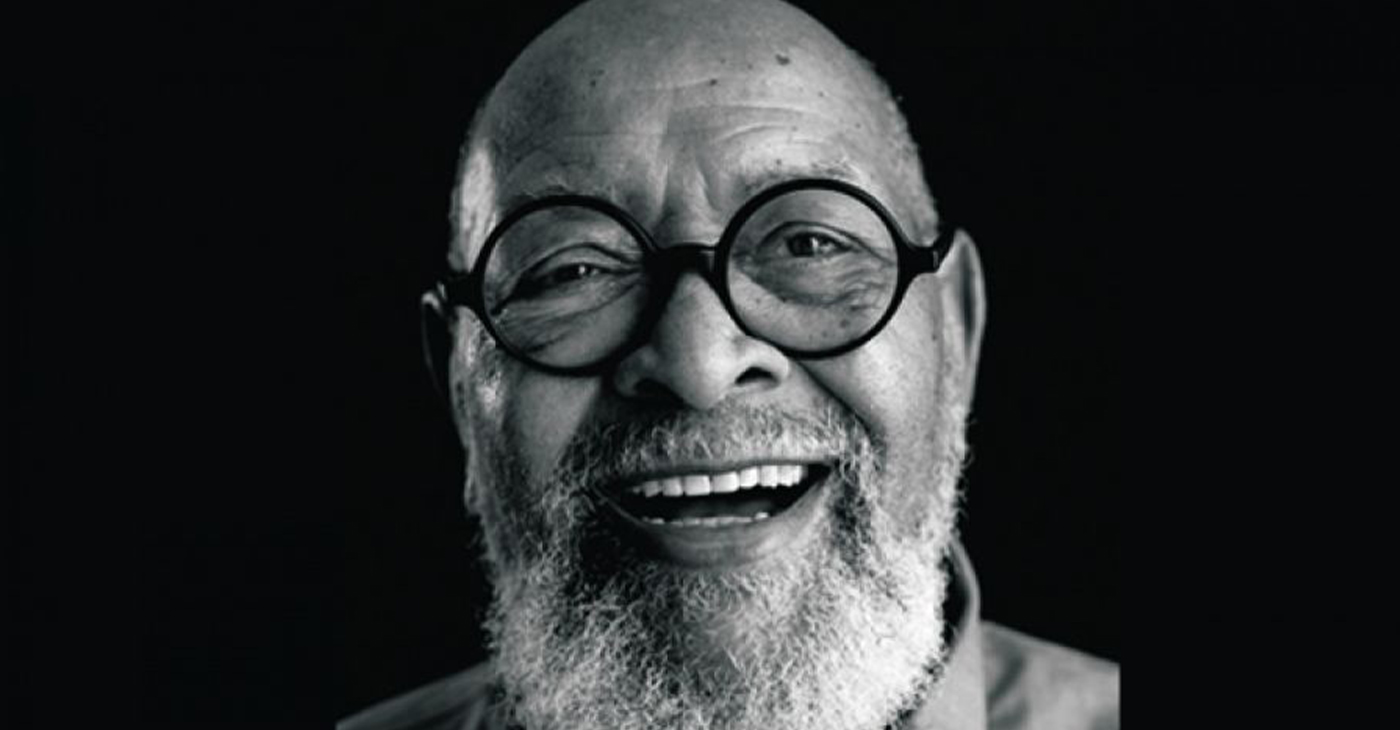
By California Black Media
On April 22, community leader and social justice advocate Reverend Cecil Williams died at his home in San Francisco surrounded by his loved ones, according to his family.
He was 94 years old.
The reverend was a civil rights leader who advocated for the equal rights of lesbian, gay, bisexual, transgender, and queer people in the Bay Area.
Williams was the head pastor of the non-denominational GLIDE Memorial United Methodist Church. The church welcomed individuals from the queer community and people struggling with homelessness, housing instability and substance use disorder (SUD).
Through his work, Rev. Williams attracted national attention. Prominent political and cultural leaders such as Maya Angelou, Bono, Oprah Winfrey, and Bill Clinton all attended church services at Glide.
Congressmember Barbara Lee (D-CA-12) said she is deeply saddened about the passing of her dear friend.
“The Reverend changed the lives of millions through radical love, support, inclusivity, and a commitment to service to the most marginalized,” Lee said.
Gov. Gavin Newsom said that the reverend inspired people across California to embody the values of generosity and acceptance.
Rev. Williams was, “a visionary leader whose legendary compassion and love for his community transformed the lives of people from all walks of life,” Newsom said.
Rev. Williams served as the chief executive officer of the Glide Foundation until his retirement in 2023.
Activism
Oakland Post: Week of May 1 – 7, 2024
The printed Weekly Edition of the Oakland Post: Week of May 1 – 7, 2024

To enlarge your view of this issue, use the slider, magnifying glass icon or full page icon in the lower right corner of the browser window. ![]()
-

 Community2 weeks ago
Community2 weeks agoFinancial Assistance Bill for Descendants of Enslaved Persons to Help Them Purchase, Own, or Maintain a Home
-

 Activism4 weeks ago
Activism4 weeks agoOakland Post: Week of April 3 – 6, 2024
-

 Business2 weeks ago
Business2 weeks agoV.P. Kamala Harris: Americans With Criminal Records Will Soon Be Eligible for SBA Loans
-

 Activism3 weeks ago
Activism3 weeks agoOakland Post: Week of April 10 – 16, 2024
-

 Community2 weeks ago
Community2 weeks agoAG Bonta Says Oakland School Leaders Should Comply with State Laws to Avoid ‘Disparate Harm’ When Closing or Merging Schools
-

 Community2 weeks ago
Community2 weeks agoOakland WNBA Player to be Inducted Into Hall of Fame
-

 Community2 weeks ago
Community2 weeks agoRichmond Nonprofit Helps Ex-Felons Get Back on Their Feet
-

 Community2 weeks ago
Community2 weeks agoRPAL to Rename Technology Center for Retired Police Captain Arthur Lee Johnson

